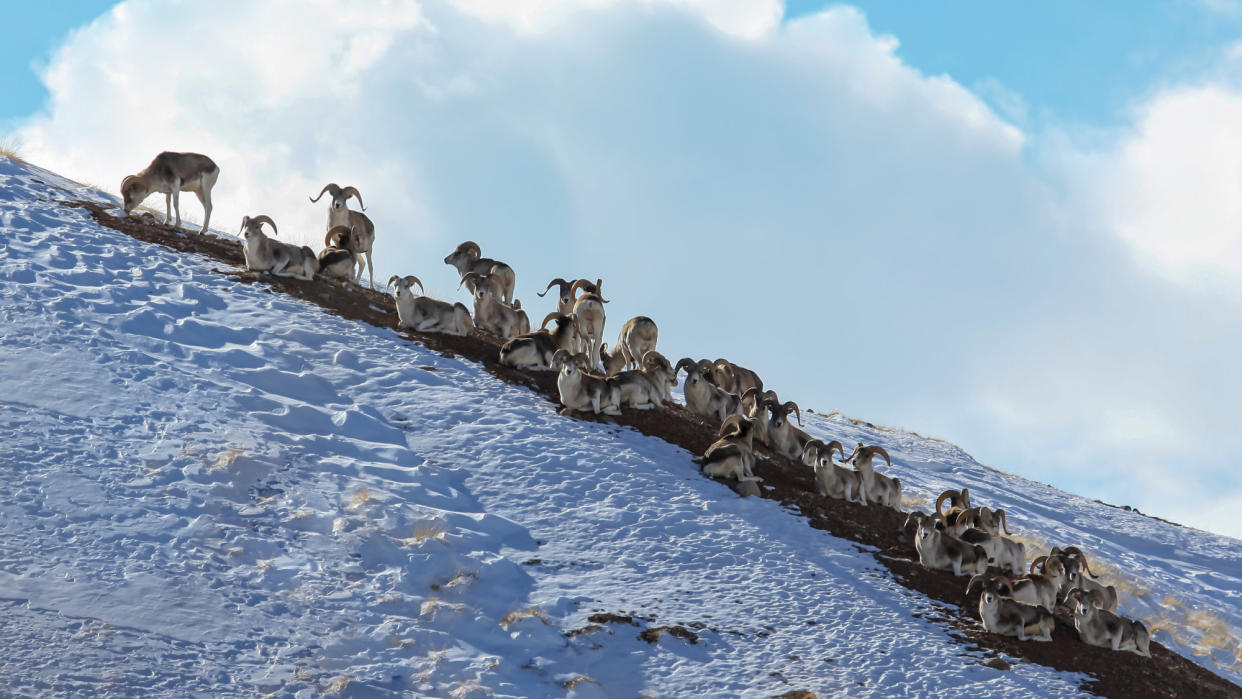Montana Man Charged for Illegally Cloning and Breeding Marco Polo Sheep from Central Asia

A Montana game farm owner is in a world of trouble after federal investigators busted up his yearslong, multi-state wild sheep cloning, breeding, and trafficking ring that involved test tube embryos, straws of semen, falsified veterinary certificates, and tens of thousands of dollars changing hands. Arthur “Jack” Schubarth of Vaughn, Montana entered a plea agreement in Montana District Court in Great Falls on Monday, in which he pled guilty to one felony count of Lacey Act trafficking and one felony count of conspiracy to violate the Lacey Act. The charges stem from a nine-year stint that began in January 2013, when Schubarth hired an unnamed third party to store tissues from a Marco Polo sheep (an Argali subspecies) that he acquired from an illegally imported, hunter-harvested carcass from Kyrgyzstan. He then paid someone to use DNA from that tissue to clone more sheep. That cloning attempt, which Schubarth forked over $4,200 for, provided him with 165 Marco Polo sheep embryos, one of which would later become the “Montana Mountain King” ram whose semen Schubarth started harvesting in 2018. Thus began the Dr. Frankenstein-esque interstate exchange of sheep semen, artificially inseminated argali and ewes, and hybridized offspring. This trafficking ring went on for two years, violating the Lacey Act with every state border crossing. In 2020, traffickers started acquiring falsified veterinary certificates from state livestock boards for easier transport. They claimed their illegally hybridized sheep were actually New Mexico Dahl sheep, bighorn sheep, and domestic sheep. Marco Polo sheep are the largest wild sheep species in the world. They’re also known as Pamir argali, due to their native range in the Pamir Mountains of Tajikistan, Afghanistan, China, and Kyrgyzstan. Marco Polo sheep are classified as “Near-Threatened” by the International Union for the Conservation of Nature and Natural Resources and as an Appendix II species under the Convention on the International Trade of Endangered Species of Wild Flora and Fauna (CITES). This means their international trade is under strict control and requires permits from their range nations. They are considered an illegal species in Montana under state law. Five additional culprits are identified in the charging documents as “Person A” through “Person E,” three from Texas, one from Minnesota, and one from Montana. All five were involved in the “alternative livestock husbandry” industry. Read Next: Poachers Posed as Photographers, Hikers in ‘Elaborate Scheme’ to Kill Big Urban Bucks Maximum penalties for each charge would be five years in prison with three years of supervised release and a $250,000 fine, according to court documents. But the plea agreement would instead ensure that Schubarth’s sentence is less serious, and would involve a fine paid to the Lacey Act Reward Fund and a community service payment to the National Fish and Wildlife Foundation. A clarification was made on Feb. 9, 2024: A previous version of this article classified Marco Polo argali sheep as “threatened” in both the headline and the body of the article. Both have been updated to reflect a more accurate assessment of the species’ global conservation status.
